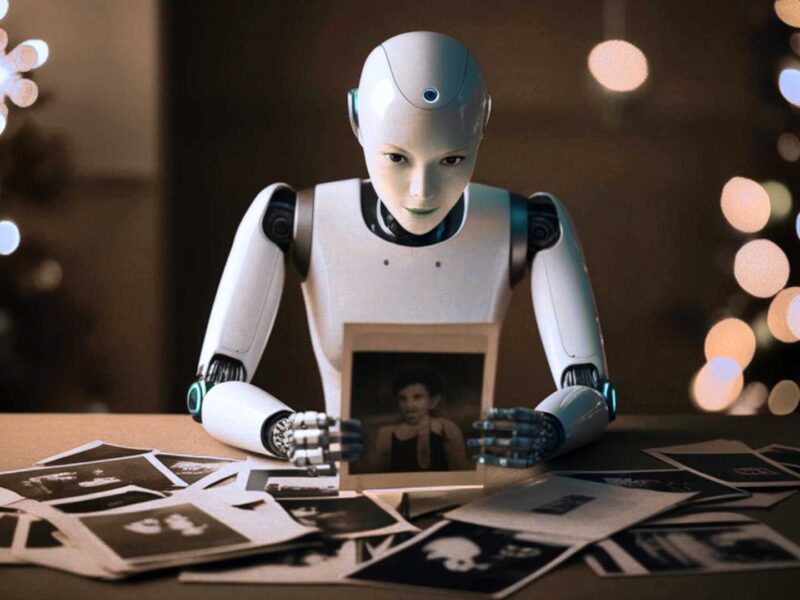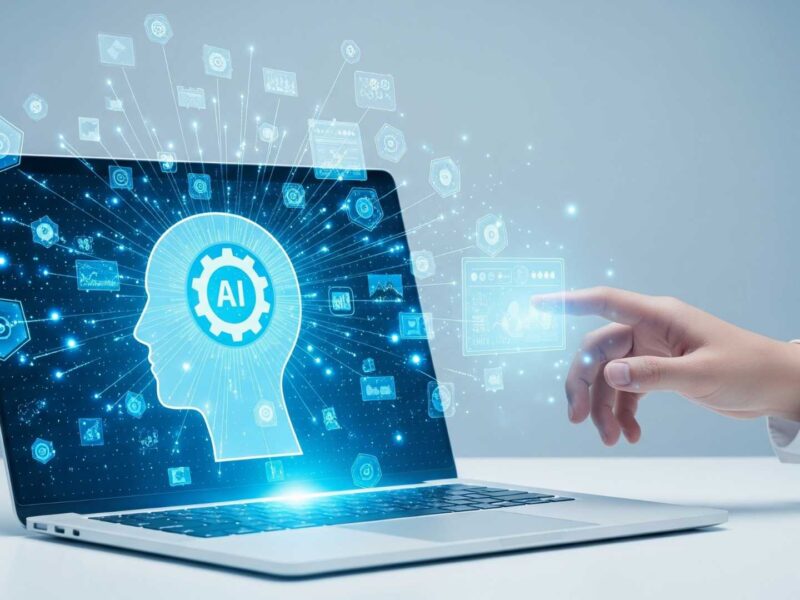Future-Proof Roles: What Leaders Say AI Can’t Replace
AI is moving incredibly fast, and let’s be honest, it’s stirring up a lot of worry about jobs and even entire industries.
AI tools are getting smarter by the day, taking on tasks we once thought only people could handle – like writing, analyzing, and automating complex work.
So, a big question is popping up: What roles, what skills, or what uniquely human qualities will always be safe from AI? What can machines just not do?
This Techronicler article dives into that very puzzle.
We’ve spoken with top business leaders, visionary thinkers, and experienced tech pros, and they’re sharing their insights.
They’ll pinpoint the specific jobs and human traits they believe AI can’t truly copy, emphasizing the lasting power of empathy, gut feeling, hands-on experience, and that deep human connection in a world more and more run by algorithms.
Read on!
Strategic Client Leadership Defies AI Replacement
In my agency, the one role that still feels untouched by AI is high-level client strategy.
Tools can analyze data, write copy, and even suggest audiences, but when it comes to understanding the emotional nuance behind a brand’s voice or diagnosing the real reason a campaign underperformed, nothing beats human experience and pattern recognition.
I’ve sat in meetings where AI-generated insights completely missed the cultural context or market sentiment, and if we had followed them blindly, we would have tanked the campaign.
Clients still rely on intuition, empathy, and creative foresight that only comes from doing the work and knowing the brand deeply.
Until AI can build trust, hold space for uncertainty, and make judgment calls under pressure, that strategic leadership role will stay very human.

Georgi Petrov
CMO, Entrepreneur & Content Creator, AIG MARKETER
Sales Remains Human Territory in AI Era
While I expect every job to evolve with AI, one role I believe will remain fundamentally human is sales.
AI is increasingly capable of generating code, designing interfaces, analyzing data, drafting legal docs, and even automating outreach. But when it comes to actually closing a deal, that’s still deeply human territory.
Sales requires understanding the emotional and psychological drivers behind a purchase, reading the room, adapting in real time, and building genuine trust with stakeholders. Buyers want to feel seen, heard, and understood, and that requires empathy, rapport, and storytelling. Those are things that AI, for all its language fluency, still struggles to replicate at a level that feels authentic.
Even in highly technical or B2B sales, deals are often won or lost based on human chemistry. People don’t buy from bots. They buy from people they trust who they believe understand their problems and can tailor a solution for them.
AI might assist, but the human element in persuasion isn’t going anywhere.
Project Managers Lead People Where AI Cannot
As both a business owner and coach, I’ve used AI in many parts of my business.
Job roles that are most impacted are roles built around repetition, data handling, or fixed workflows, basically, “the doers”. Those are the roles where automation + AI can take over fast.
However, the one role I don’t see AI replacing any time soon is a role focusing on people and strategic planning, the role of a Project Manager.
Here’s why:
– Project management is deeply human; it requires navigating emotions, personalities, and priorities.
– The role demands strategic thinking, not just task execution.
– It’s about leadership, not logistics; influencing, aligning, adapting.
AI can support a project manager in organizing timelines, surfacing risks, or even helping with documentation. But it can’t lead a tough conversation, handle conflict, or shift a roadmap based on human context.
From what I see, the future of any job role that still stays won’t be “AI vs humans.” It’ll be project managers who use AI well vs those who don’t.
So, rather than replace the role, AI will raise the bar. The best PMs will use AI so they can focus more on what matters: leading people, managing change, and thinking ahead.

Antony C
Founder & Coach, Coach Days
B2B Relationship Management Requires Human Touch
Customer relationship management, particularly in complex B2B transactions, remains one of the least affected jobs by AI in our company.
Empathy, trust, and strategic thinking required in establishing and fostering long-term relationships are still highly reliant on human touch and prudent judgment, something that AI is not very good at.

George Fironov
Co-Founder & CEO, Talmatic
On-Site Pest Technicians Bring Intuition AI Lacks
AI won’t replace on-site technicians anytime soon.
When you’re crawling under someone’s house in the middle of summer, inspecting for termites or rodent entry points, there’s no substitute for human intuition and experience. I remember a job out near Buda where the signs didn’t match what the client reported — it turned out to be a slow leak in the wall, not a pest issue at all. AI can’t sniff that out from a keyboard.
Our techs are the eyes, ears, and hands on the ground. They notice things that don’t show up on a work order. They build relationships with customers face-to-face. That kind of problem-solving and trust-building can’t be automated.
Tools might evolve, sure — we’ll use better sensors or routing software — but the heart of this work stays human.

Tony Ragan
President, Absolute Pest Management
Human Customers Still Prefer Human Interactions
As a Software Engineer almost all of my work has been impacted by AI. However one role that has remained nearly identical to what it was a few years ago is that of the customer.
No matter how AI evolves in the near future the customers will always remain human.
This is something we sometimes forget in our race to automate every function in a business, as a lot of functions that interact with customers need to remain with a person in them for the simple reason that people prefer to interact with other people.
While customer support has become one of the first things that was automated by AI, this has also been the biggest obstacle in AI adoption for most businesses.

Robert Koch
Software Engineer, Kochie
In-Person Connections Remain AI-Proof
I’d actually argue that in experiential marketing, it’s not just one role that remains largely untouched by AI, but the entire essence of what we do.
We create real-world moments that rely on human presence, physical space, emotion, and energy–things that, at least for now, AI can’t replicate. No algorithm can replace the feeling of being surrounded by thousands of fans at a brand activation, or the spontaneity of a conversation sparked at a live event.
While AI will absolutely enhance parts of our workflow, I don’t see it fundamentally disrupting the live experience space in the near term.
In fact, as digital marketing gets more saturated and AI-generated content floods the internet, I believe more brand marketers will recognize the unmatched value of in-person connection. We’re already seeing that shift.
Human Skills, Adaptability Remain AI-Resistant
Some roles in our industry, such as platform engineers, engineering leaders, technical architects, software developers, data scientists, cybersecurity experts, and creative professionals like designers and artists, have so far been less impacted by AI.
These roles still demand human intuition, contextual judgment, and a mix of creativity and systems thinking that AI has not fully replicated.
That said, the future remains uncertain.
With AI evolving at a rapid pace, it is difficult to predict which roles will remain unaffected. What seems AI-resistant today may not be tomorrow. While some positions currently appear safer, we cannot make any guarantees.
The only constant is change, and the need to adapt.

Hiren Dhaduk
Chief Technology Officer, Simform
Artisan Craft, EQ Defy AI Automation
In the fine jewelry industry, one role that remains largely untouched by AI is that of the master artisan, particularly in disciplines like hand engraving, repoussé, and pavé stone setting. These are highly specialized skills that require not only technical precision but also a deeply intuitive and artistic human touch.
While AI can assist in design simulations or streamline logistics, the soul of handcrafted jewelry lies in its imperfection, emotion, and individuality…qualities no algorithm can replicate. Communications in this industry similarly rely on a nuanced understanding of heritage, storytelling, and brand voice, which demand emotional intelligence and cultural fluency.
As someone who works at the intersection of luxury branding and craftsmanship, I believe this blend of handwork and heart will remain one of the last strongholds of the human touch in an increasingly automated world.
On behalf of the Techronicler community of readers, we thank these leaders and experts for taking the time to share valuable insights that stem from years of experience and in-depth expertise in their respective niches.
If you wish to showcase your experience and expertise, participate in industry-leading discussions, and add visibility and impact to your personal brand and business, get in touch with the Techronicler team to feature in our fast-growing publication.














